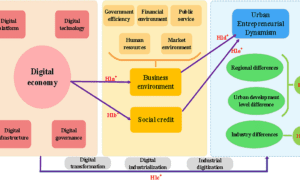The healthcare landscape is evolving rapidly, and digital medical platforms are leading this transformation. By integrating technologies such as telemedicine, artificial intelligence (AI), and cloud-based patient management systems, these platforms are reshaping how care is delivered, making it more accessible, personalized, and efficient for patients worldwide.
The rise of digital medical platforms
Digital medical platforms create a centralized ecosystem where patients, doctors, and healthcare institutions can interact seamlessly. They offer:
- Remote medical consultations
- Instant access to electronic medical records
- Real-time health monitoring
- Streamlined communication between care providers
This interconnected environment reduces the burden on hospitals and clinics while empowering patients to play an active role in their health management.
For patients with complex medical needs, such as those seeking organ transplants, digital medical tourism platforms provide major advantages. Patients exploring treatment options abroad can easily research affordable procedures, including liver transplants in Turkey, compare hospitals, evaluate success rates, and consult specialists virtually. Such transparency and convenience were unimaginable just a decade ago.
Personalized and data-driven care
A key benefit of digital medical platforms is their ability to use patient data to deliver highly personalized care. AI-powered algorithms analyze medical histories, diagnostic results, and lifestyle information to create tailored treatment plans. This data-driven approach helps healthcare providers:
- Make more accurate medical decisions
- Reduce diagnostic errors
- Improve patient outcomes
In addition, continuous monitoring through wearable devices and mobile health apps allows real-time tracking of vital signs. Patients with chronic conditions, such as diabetes, heart disease, or respiratory disorders, receive alerts for potential complications and can communicate instantly with healthcare providers when urgent intervention is needed.
Enhancing accessibility and convenience
Digital platforms bridge geographical barriers, allowing patients to consult specialists without traveling long distances. Telemedicine significantly reduces waiting times and ensures rapid access to qualified medical experts, especially for patients in remote or underserved regions.
This convenience also extends to medical tourism. Patients seeking treatment abroad can rely on secure platforms that verify hospital credentials, outline treatment procedures, and assist with travel logistics. With the right digital infrastructure, patients can confidently plan safe medical travel in Turkey, benefiting from coordinated, high-quality care throughout their journey.
Cost efficiency and transparency
Digital medical platforms support cost-effective healthcare by reducing unnecessary hospital visits and improving resource allocation. Patients can:
- Compare treatment options
- Read verified patient reviews
- Request virtual second opinions
- Evaluate costs before committing to a procedure
- This transparency helps them make informed decisions while limiting financial risks.
For international patients, particularly those seeking specialized surgeries such as liver transplants, these platforms provide a clear comparison of costs, hospital capabilities, surgeon experience, and expected outcomes. Such clarity is crucial for managing both expectations and budgets.
Driving innovation in the healthcare sector
Beyond clinical care, digital medical platforms accelerate innovation across the healthcare industry. They enable the integration of cutting-edge technologies, including:
- AI-based diagnostic tools
- Virtual reality assistance for complex surgeries
- Predictive analytics for preventive medicine
Hospitals using these solutions can improve operational efficiency, enhance diagnostic accuracy, and expand care delivery to larger populations.
Additionally, the collaborative environment created by digital platforms allows medical professionals worldwide to share expertise, participate in clinical trials, and stay updated on the latest medical advancements, ultimately benefiting patients.
Conclusion
Digital medical platforms are fundamentally transforming patient care, offering unprecedented levels of accessibility, personalization, and efficiency. From remote consultations to helping patients make informed medical tourism decisions, these platforms empower individuals while supporting healthcare providers in delivering better outcomes. As technology continues to evolve, digital platforms will remain essential to the future of modern healthcare.



































